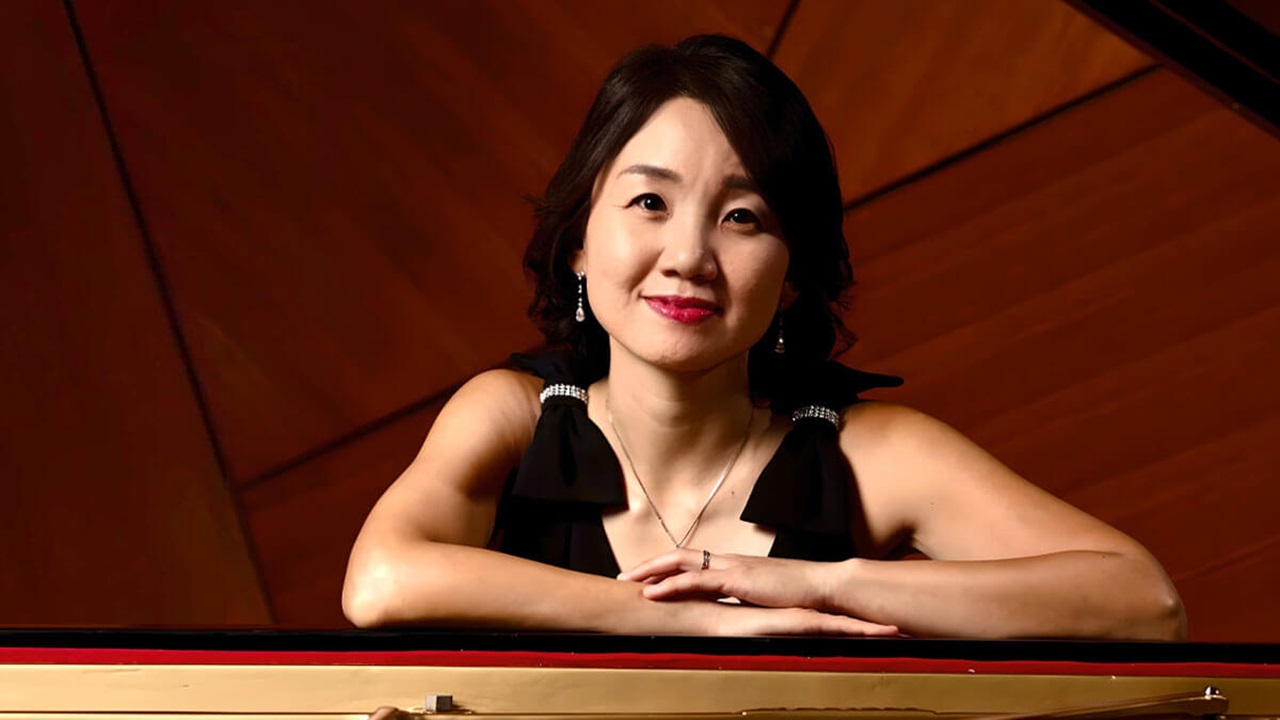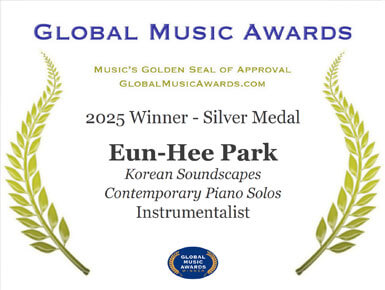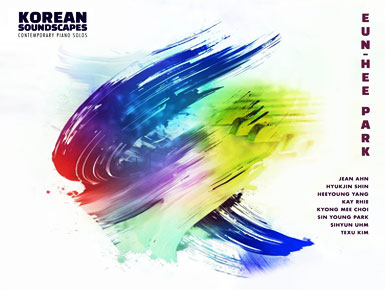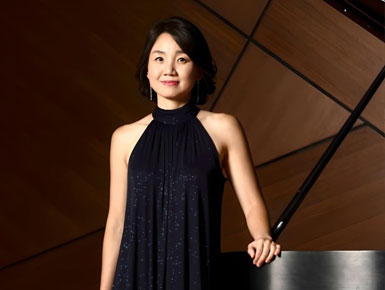Blending Cultures Through Keys: USD Assistant Professor Releases ‘Korean Soundscapes’ Album

The album has already received global recognition, winning the Silver Medal in the Instrumentalist category at the Global Music Awards.
“Korean Soundscapes” is a balancing act of the established tradition and hyper-advanced modernity of Korea. Vignettes of urban life intermingle with folk songs, Western compositional techniques blend with age-old Korean melodies and traditional dances contrast with barely tonal meditations. The album offers a fascinating peek behind the cultural curtain, enlivened further by Park’s immaculate pianism.
Park is an assistant professor and director of collaborative piano studies at USD, a soloist and a chamber musician. She has given numerous concerts throughout the United States, South Korea, Japan, Italy, Brazil and Costa Rica. As a recording artist, she has released albums that have received Global Music Award’s Silver Medal in the Classical Music and the Chamber Music categories in 2023 and 2022 respectively.
She is also the newly appointed pianist of the Rawlins Piano Trio, which she joined in the fall of 2024.
Her previous appointments include serving as associate professor of music and head of the keyboard area at the University of Montevallo, the Hartt School, Music in the Mountains Conservatory, University of Southern Mississippi, Southern Mississippi Piano Institute, Westport School of Music, the Chapel Hill Chamber Music Workshop, Interlochen Arts Camp, Oklahoma City University and Principal Pianist for the Albany Symphony Orchestra.
Park received degrees from Florida State University (D.M.), Oklahoma City University (M.M.), and Colorado Mesa University (B.A.). Her teachers include Carolyn Bridger, Amy I-Lin Cheng, Ernestine Scott, Michael Baron, Timothy Olsen (Organ) and Karyl Louwenaar.
Reflecting on "Korean Soundscapes” and the journey to its release, here is what Park had to say.
How did you come up with the title, “Korean Soundscapes,” and what does it mean to you?
Coming up with a title that truly encapsulates this CD project was more challenging than I expected. My goal was to find a title that conveys the essence and purpose of the project: promoting the exceptional artistry and creativity of living Korean composers. Modern Korean culture is a blend of authentic traditions and significant influences from Western cultures. The composers featured in this album reflect this cultural diversity, having been educated in both Korea and the U.S. The title “Korean Soundscapes” truly reflects the heart of this project and its artistic vision.
How did you approach bringing the balance between Korean tradition and modernity to life in this album?
Balancing Korean tradition and modernity in this album came naturally because the composers themselves embody both worlds. Their music blends traditional Korean elements—like rhythmic patterns, melodic gestures and folk influences—with contemporary techniques and global influences. As a pianist, I focused on bringing out these contrasts, shaping the sound in a way that highlights both the rootedness in tradition and the freshness of modern expression. Having trained in both Korea and the U.S., I feel a personal connection to this duality, and I aimed to interpret the pieces in a way that feels authentic yet accessible to a wide audience.
How did you choose the composers and these particular works?
In 2020, I became deeply intrigued by the innovative compositional styles emerging in piano solo works, particularly from the fourth generation of Korean composers. Their music is sophisticated, groundbreaking and world-class, yet it remains underperformed and underrepresented on the global stage. The primary goal of this album is to promote diversity in the piano solo repertoire by showcasing the artistry and creativity of these living Korean composers and amplifying their voices.
I was especially drawn to these composers because of our shared background—we all received musical training in both Korea and the U.S. This dual perspective has profoundly shaped our artistic voices and allows me to connect with their music on a deeply personal level. Beyond professional collaboration, I felt a strong sense of responsibility to represent and interpret their works in a way that bridges cultures and resonates with audiences across traditions.
This project also became a journey of self-discovery, deepening my understanding of my own cultural identity and the historical evolution of classical music training in Korea. It has been an enriching and transformative experience, strengthening my appreciation for the diversity and depth of contemporary Korean piano music. I hope to continue exploring and championing the works of living Korean composers, bringing their music to a wider audience and creating more opportunities for listeners to engage with these extraordinary voices.
How does your experience as both a performer and an educator influence the way you interpret these compositions?
Being both a performer and an educator gives me a dual perspective that deeply shapes my interpretation of these works. As a performer, I focus on capturing the emotional and technical depth of each piece, bringing the composer’s vision to life. As an educator, I think about how to communicate the music’s structure, cultural context and stylistic nuances to audiences. This balance helps me approach the music with both artistry and clarity, making these contemporary Korean compositions more accessible and impactful for listeners.






